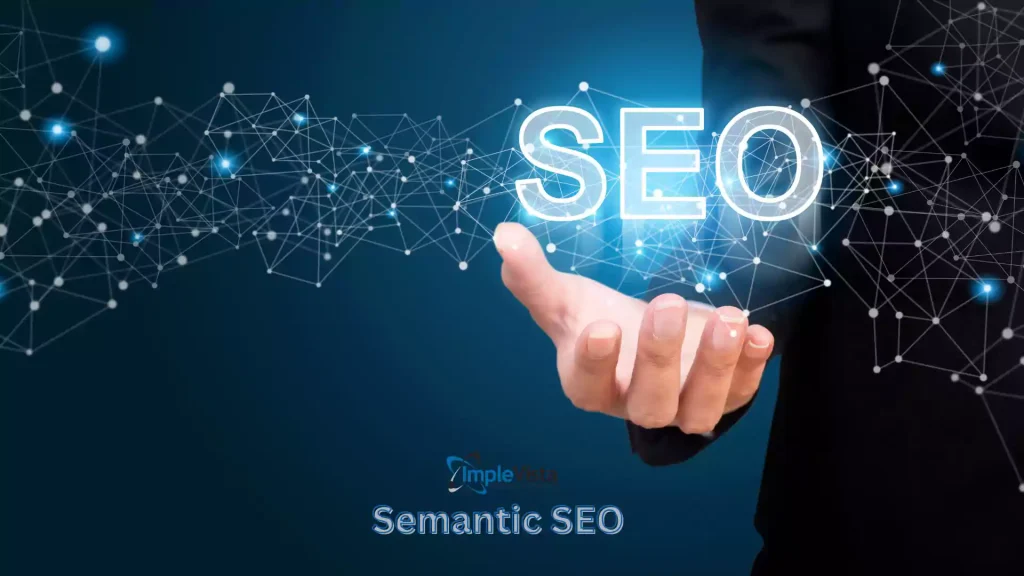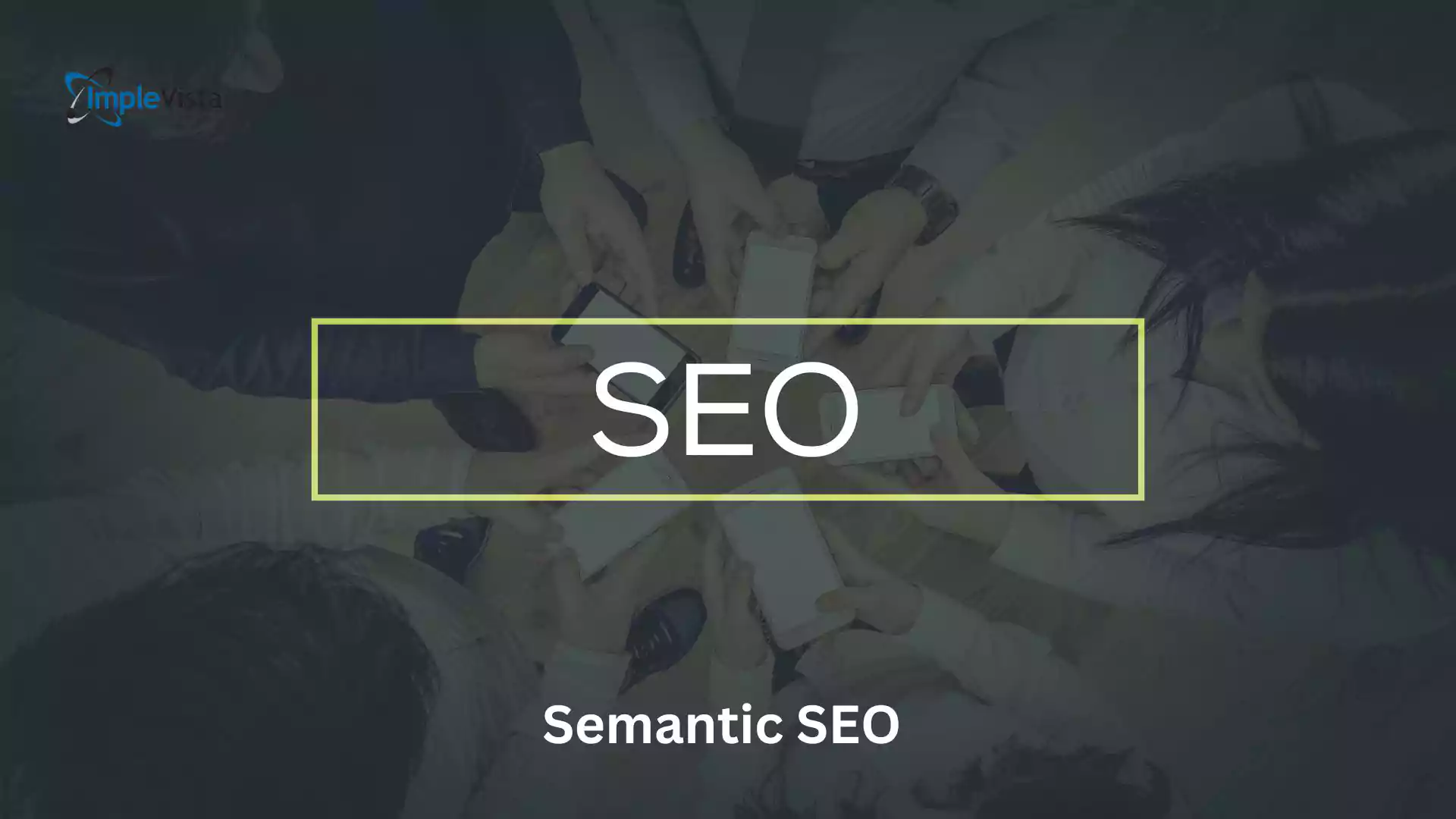SEO knowledge is more important than ever in today’s digital world, where search engines are more intelligent. Semantic Search Engine Optimization is a game-changer. So what is Semantic SEO, and why should you care? Let’s examine how this issue can change your SEO strategy.
What is Semantic SEO?
Advanced Search Engine Optimization optimizes content by focusing on word meaning rather than keywords. It requires contextually relevant material that matches search queries. With Search Engine Optimization, search engines comprehend language better, offering more accurate and meaningful results.
Importance of Semantic SEO in Modern Search Engines
With search algorithms learning human language, Search Engine Optimization is crucial. It improves search results, helping consumers locate what they need. Search Engine Optimization may raise content exposure and efficacy as search engines improve context and intent.
The Evolution of SEO
Traditional SEO vs. Semantic SEO
In traditional Search Engine Optimization, exact-match keywords and meta tags were crucial. Optimizing content for specific search words improved SERP rankings. The emergence of Search Engine Optimization came when search engines prioritized user intent and context.
How Search Engines Have Changed
Search engines have become more sophisticated, incorporating natural language processing (NLP) and machine learning to understand the context and meaning behind search queries. This shift has made it crucial for SEO strategies to adapt and focus on the semantic aspects of content.
Critical Concepts of Semantic SEO
Semantic Search: Definition and Mechanism: The search engine’s semantic search functionality goes beyond keyword matching to grasp a search query’s meaning and context. We analyze a user’s query intent and provide contextually appropriate results.
Entities and Topics: Understanding Their Role: In Search Engine Optimization, entities are people, places, or things search engines comprehend. Topics cover many things. Users benefit from material created by understanding these ideas.
Contextual Relevance: Why It Matters: In Search Engine Optimization, content must match user search intent through contextual relevance. By considering context, you may develop content that answers specific issues or requirements, increasing user engagement and pleasure.
How Semantic SEO Enhances User Experience
Improved Search Accuracy: Search engines may improve accuracy and meaning by concentrating on semantic relevance. Content that meets user intent and expectations enhances the user experience.
Personalized Search Results: With SEO, search engines personalize results based on user preferences and search history. This customization boosts user happiness and information retrieval.
Core Components of Semantic SEO
Structured Data: Implementation and Benefits: Structured data involves adding specific tags to your content to help search engines understand its context. By using schema markup, you can enhance your content’s visibility and improve its chances of appearing in rich snippets.
Natural Language Processing (NLP): Its Impact: NLP is a critical component of semantic search that helps search engines understand and process human language. By incorporating NLP techniques, you can create content that aligns with how users naturally search for information.
Content Optimization: Techniques for Success: Content for semantic search should be topic-relevant, use related phrases, and be thorough. Detailing articles and incorporating multimedia can boost semantic relevance.
Best Practices for Semantic SEO
Keyword Research: Going Beyond Simple Keywords: In Search Engine Optimization, keyword research includes primary keywords and associated phrases and concepts, creating more relevant and diverse material.
Creating Topic Clusters: Organizing Your Content: Topic clusters bundle relevant items around a theme. This layout improves search engines’ perception of content relationships and site authority.
Using Schema Markup: Practical Applications: Schema markup helps search engines recognize content structure and context. Schema tags boost content visibility and rich results.
Tools and Technologies for Semantic SEO
SEO Tools: Popular Options for Semantic Analysis: Content analysis and keyword research systems help Search Engine Optimization. Identify interesting subjects, assess content performance, and optimize Search Engine Optimization with these tools.
AI and Machine Learning: Enhancing SEO Strategies: Artificial intelligence and machine learning can improve Search Engine Optimization by evaluating massive datasets and revealing user behavior and content performance. This technology can boost your Search Engine Optimization strategy and outcomes.
Measuring the Success of Semantic SEO
Analytics and Metrics: Key Performance Indicators: To measure the success of your Search Engine Optimization efforts, track key performance indicators such as organic traffic, search rankings, and user engagement metrics. Analyzing these metrics, such as engagement rates, conversion rates, and customer acquisition costs, can help you gain valuable insights into how well your current strategy is performing and where you may need to make adjustments.
Adjusting Strategies: Based on Performance Data: Ensure better Search Engine Optimization performance by fine-tuning your strategy using performance data. Your content, keywords, and methods may need to be improved.
Case Studies and Examples
Successful Implementations: Real-World Examples: Explore real-world examples of successful semantic SEO implementations to understand how different strategies have been applied and their outcomes.
Lessons Learned: Insights from Various Industries: Case studies and industry insights can help you understand Search Engine Optimization and how to apply it to your approach.
Challenges and Solutions in Semantic SEO
Common Challenges: Search Engine Optimization issues include algorithm updates, content relevance, and data management.
Practical Solutions and Tips: Maintaining industry knowledge, tailoring content for relevance, and leveraging modern Search Engine Optimization techniques and technologies will help you overcome these problems.
The Future of Semantic SEO
Emerging Trends: Monitor emerging trends in Search Engine Optimization, such as advancements in AI and changes in search engine algorithms. Staying ahead of these trends can help maintain your competitive edge.
How to Stay Ahead: To stay ahead in the evolving field of Search Engine Optimization, continuously update your knowledge, adapt your strategies, and leverage new technologies and tools.
Semantic SEO significantly changes search engine optimization. Focusing on context, relevance, and user purpose may boost content exposure and efficacy. These tactics will help you dominate Search Engine Optimization and provide your audience with a great experience.
Q: Why Digital Implevista is the Best Semantic SEO Service Provider Company in Bangladesh
A: The ever-changing digital marketing landscape has been transformed by semantic SEO. It understands search intent and delivers material that meets users’ needs. Search Engine Optimization services from Digital Implevista are the finest in Bangladesh.
Q: What is Semantic SEO, and Why is it Important?
A: Semantic Search Engine Optimization moves beyond keyword optimization. It helps search engines grasp user intent by focusing on search query meaning and context. Websites may improve search rankings and user experiences by prioritizing relevance and context.
Importance:
Improved Search Rankings: Search Engine Optimization helps search engines understand your content better, resulting in improved rankings.
Better User Experience: Content that matches user intent keeps visitors engaged, reducing bounce rates and increasing conversions.
Future-Proofing: As search algorithms become more sophisticated, Search Engine Optimization prepares your website for long-term success.
Q: Why Choose Digital Implevista for Semantic SEO Services?
A: Digital Implevista leads Bangladesh in semantic SEO services owing to its local market knowledge, cutting-edge technology, and experienced staff. Some reasons they’re the best:
Expert Team: Digital Implevista boasts a team of Search Engine Optimization experts who are well-versed in the latest trends and technologies in SEO.
Tailored Solutions: They offer customized Search Engine Optimization strategies that align with your business goals and target audience.
Proven Results: With a track record of delivering measurable results, Digital Implevista has helped numerous businesses achieve higher search rankings and better online visibility.
Q: What Can You Expect from Digital Implevista’s Semantic SEO Services?
A: When you partner with Digital Implevista for your Search Engine Optimization needs, you can expect comprehensive services designed to enhance your online presence. These services include:
Keyword and Context Analysis: Understanding the intent behind search queries and optimizing content accordingly.
Content Optimization: Ensuring that your content is relevant, engaging, and meets the needs of your target audience.
Technical Search Engine Optimization: Enhancing website structure, speed, and mobile-friendliness to improve search rankings.
Ongoing Support and Monitoring: Regular performance tracking and updates to ensure sustained success in search rankings.
Q: What is the difference between traditional SEO and semantic SEO?
A: Traditional Search Engine Optimization focuses on exact-match keywords and meta tags, while Search Engine Optimization emphasizes understanding the meaning and context behind search queries.
Q: How can I implement semantic SEO on my website?
A: Implement semantic SEO by optimizing content for context and relevance, using structured data, and focusing on topic clusters and related terms.
Q: What are some tools for semantic SEO?
A: Popular tools for Search Engine Optimization include content analysis platforms, keyword research tools, and AI-powered Search Engine Optimization technologies.
Q: How do I measure the effectiveness of my semantic SEO strategy?
A: Measure effectiveness by tracking key performance indicators such as organic traffic and search rankings.
Digital Implevista is Bangladesh’s top service provider due to its dedication and creative Search Engine Optimization strategy. They assist organizations in improving exposure, user engagement, and long-term success in the competitive digital world by concentrating on search query intent.






